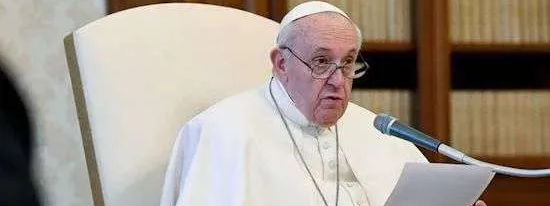
In his annual message for World Day of Migrants and Refugees, Pope Francis stated that “our societies will have a ‘colorful’ future, enriched by diversity and by cultural exchanges,” stressing the need to learn to live together, in harmony and peace.

In a message for the 107th World Day of Migrants and Refugees, to be celebrated on September 26, Pope Francis said he was making “this appeal to journey together towards an ever wider ‘we’ to all men and women, for the sake of renewing the human family, building together a future of justice and peace, and ensuring that no one is left behind.”
The pontiff went on to say that “our societies will have a ‘colorful’ future, enriched by diversity and by cultural exchanges.”
“Consequently, we must even now learn to live together in harmony and peace,” he noted in a message published on May 6. The theme of this year’s World Day of Migrants and Refugees is “Towards an even wider we”.
The pontiff warned that “to achieve this ideal, however, we must make every effort to break down the walls that separate us and, in acknowledging our profound interconnection, build bridges that foster a culture of encounter.
“Today’s migration movements offer an opportunity for us to overcome our fears and let ourselves be enriched by the diversity of each person’s gifts,” the pope noted.
Then, “if we so desire, we can transform borders into privileged places of encounter, where the miracle of an ever wider ‘we’ can come about,” Francis also said.
Against aggressive nationalism
Francis started his message by citing the Encyclical Fratelli Tutti, saying that “once this health crisis passes, our worst response would be to plunge even more deeply into feverish consumerism and new forms of egotistic self-preservation. God willing, after all this, we will think no longer in terms of ‘them’ and ‘those’, but only ‘us'”.
The present time, however, “shows us that this ‘we’ willed by God is broken and fragmented, wounded and disfigured. … (it) is crumbling and cracking due to myopic and aggressive forms of nationalism and radical individualism.”
The highest price, the pope said in the message “is being paid by those who most easily become viewed as others: foreigners, migrants, the marginalized, those living in the existential peripheries.”
However, “we are all in the same boat and called to work together so that there will be no more walls that separate us, no longer others, but only a single ‘we’, encompassing all of humanity,” he noted.
A more inclusive church
The pontiff issued a “dual appeal” in this direction, for members of the Catholic Church and for all the men and women in the world. The Catholic faithful are “called to work together, each in the midst of his or her own community, to make the Church become ever more inclusive.”
“The encounter with migrants and refugees of other denominations and religions represents a fertile ground for the growth of open and enriching ecumenical and interreligious dialogue,” the pontiff said.
Cardinal Parolin concluded the message by assuring all participants in the Conference, which concludes on Thursday, of Pope Francis’ prayers and blessing, adding his own hopes for every success with this “important pastoral initiative.”
